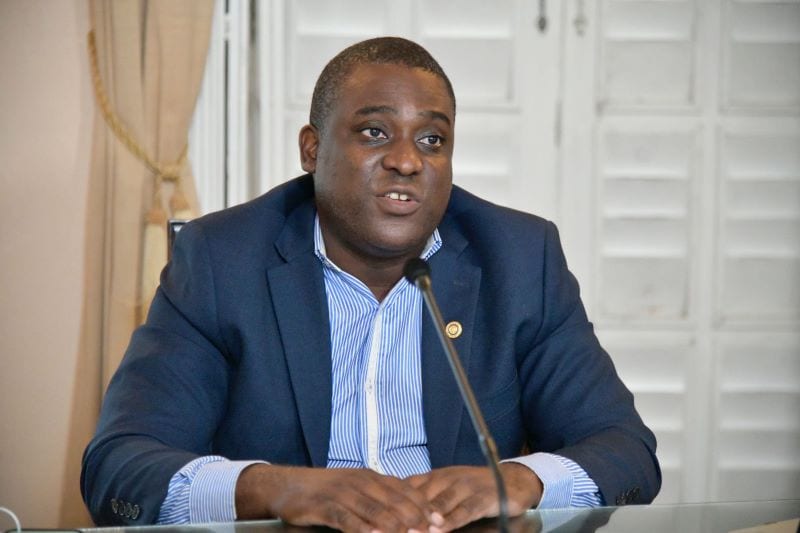Several improvements have been made at the Harrison’s Point Isolation Facility to increase its capacity to manage COVID-19 patients.
Manager of Isolation Facilities, Dr. Corey Forde, gave an overview of what has been done so far, during a press conference held this afternoon, to update the country on Government’s COVID-19 response.
He revealed that the area known as tertiary isolation had been upgraded with its own oxygen supply and other critical amenities, allowing for a higher level of care to be administered within that particular section.
Dr. Forde indicated that efforts were under way to provide additional support to the team at the St. Lucy-based facility.
He stated that in addition to the medical personnel from within the Barbadian diaspora, several young people from across the island “were now training in various areas across the facility, which will lend assistance to the nurses and physicians”.
He added that discussions were ongoing with the Barbados Association of Medical Practitioners on how they could lend further assistance to the team, noting: “We continue to work together with our partners to try to improve the level of care across our system.”
The Isolation Facilities Manager also shared an overview of the overall health status of seriously ill patients at Harrison’s Point.
“In our Primary Isolation A area, which we knew before as primary isolation, we have a total of 30 people; 20 of them are on non-invasive ventilation, and four of them are actually on invasive isolation.

“In terms of Primary B, which used to be called secondary isolation, we have a total of 10 persons on oxygen. In our new high dependency unit, we have a total of 73 individuals, the majority of them in that area are on oxygen and have severe disease,” he stated.
During his presentation, Dr. Forde also expressed concern about the rate of infection among the elderly population. “I have a special place in my heart for the elderly…. In August, we had a total of one person coming into the facility who was 80 years of age. In September, there were 23, and October, there were 42. So far, for November, we’ve had 18. Those numbers may not seem big to you but to me, they’re significant…because these are the people who are least likely to be able to help themselves…, although we have saved the majority of these individuals, it is painful to see elderly people in that situation,” Dr. Forde said.
He urged those who suspect that their elderly relatives may be ill to have them tested for the virus, and to seek medical attention.
“If you get them to us late, it is very, very, very difficult to save them. That’s just a stark reality, and this is no different as has happened across the globe.” Additionally, Dr. Forde encouraged persons to seriously consider having their elderly family members vaccinated against COVID-19.
“We were able to swiftly and skilfully manage as many persons as we possibly could in the Geriatric Hospital and now we’re out of that particular zone. And I think that’s testimony, really, to the importance of vaccinations, given that the majority of those patients were vaccinated…. We actually went into two nursing homes and we were able to save those persons, and I think that certainly is a major feat,” he noted.
